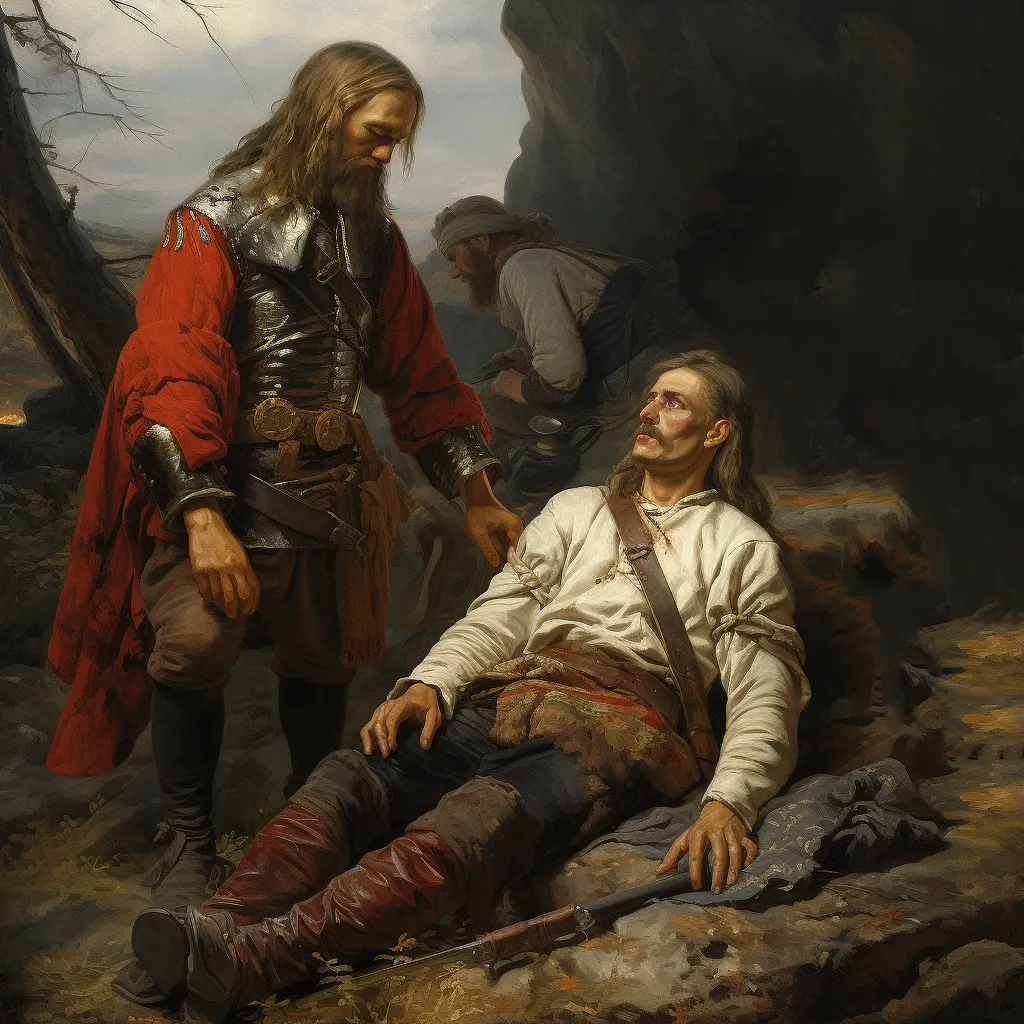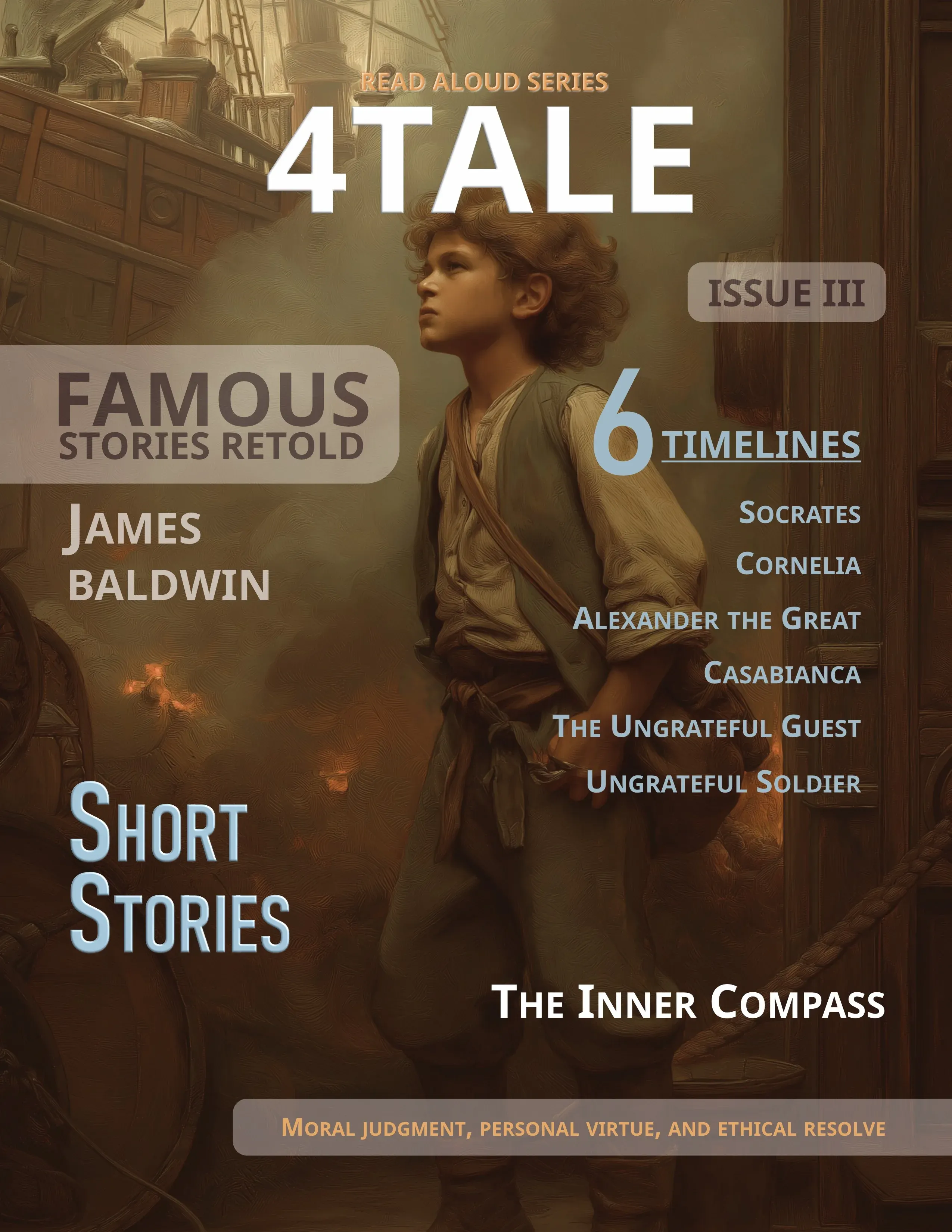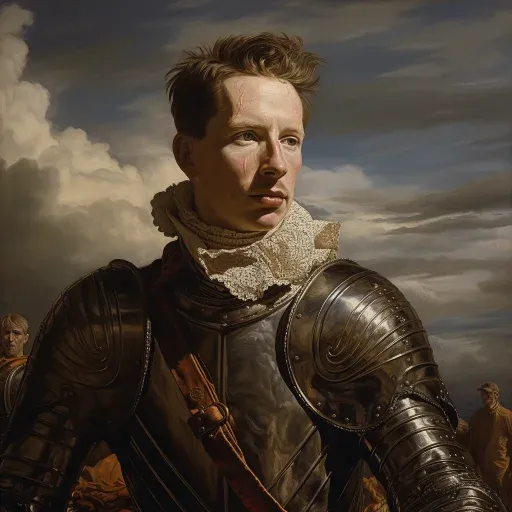BY JAMES BALDWIN
The Ungrateful Soldier
Famous Stories Retold: Story 14 of 50

Heading

War Story: This story takes place during a war between the Swedes and the Danes, highlighting themes of gratitude and treachery.
Forgiveness: Despite the betrayal, the Danish soldier still spared the Swede’s life, displaying remarkable mercy and honor.
A good book we like, we explorers. That is our best amusement, and our best time killer
- Roald Amundsen, Explorer
The Ungrateful Soldier: A Tale of Courage and Kindness
Immerse yourself in the riveting tale of a battlefield encounter that exemplifies both the cruelty and kindness of human nature. Discover the story of a Danish soldier whose compassion is met with ingratitude, yet his noble spirit remains unbroken. This tale serves as a timeless reminder that even in the midst of conflict, compassion and courage can prevail. Prepare to explore a narrative where bravery goes beyond the battlefield and shapes the destinies of those involved. As we journey through this historical event, you'll learn the true value of honor and the profound impact of a single act of kindness.
The Historical Context of the Battle
In the folklore of European history, we find ourselves transported back to a time of conflict, specifically between the Swedes and the Danes, roughly a century after the era of Sir Philip Sidney. A fierce battle had erupted, leading to the defeat of the Swedes who were forced to retreat from the battlefield, leaving behind a ground soaked with the blood of soldiers from both sides.
The Wounded Danish Soldier's Act of Compassion
In the aftermath of the battle, a Danish soldier, lightly wounded, found solace on the battlefield. As he was about to quench his thirst from a flask, he heard a plea for help. The voice belonged to a wounded Swede, lying in close proximity. Demonstrating an act of compassion that transcends the boundaries of nationality and war, the Dane, without hesitation, approached the Swede and offered him a drink from his flask. His words, "Drink, for thy need is greater than mine," echo the spirit of humanity that can persist even amidst the horrors of war.
Podcast
The Ungrateful Swede's Betrayal
However, the Swede's response to the Dane's act of kindness was far from gratitude. In a shocking turn of events, the wounded Swede, after taking a sip, raised himself on his elbow, pulled out a pistol, and directed a shot at the Dane. Although the bullet merely grazed the Dane's shoulder, the intention to kill was clear. The Dane, taken aback by the betrayal, responded not with rage, but with continued compassion. He chose to punish the Swede by only allowing him to drink half of the remaining water. The Dane's reaction to this act of treachery reflects a strength of character that is rare and commendable.
The Unexpected Outcome of the Encounter
Despite the Swede's betrayal, the Danish soldier chose not to retaliate with violence, but instead to punish him in a different way. Instead of giving the Swede all the water he'd originally intended to share, the Danish soldier drank half himself before offering the rest to his enemy. This surprising response demonstrated the soldier's commitment to his principles, even in the face of treachery. His action was a powerful testament to his character, showing that he valued mercy and compassion over revenge, even at great personal risk.

The Danish King's Reaction and Questions
Upon hearing of this incident, the King of the Danes was intrigued and summoned the soldier to his court. He wanted to understand the motivations behind the soldier's actions. When asked why he had spared the life of the Swede who had just attempted to kill him, the soldier had a simple yet profound response. He stated that he could never kill a wounded enemy, showcasing his deep sense of honor and respect for the dignity of all human life, regardless of the circumstances. This revelation further highlighted the soldier's noble spirit and his commitment to maintaining his principles, even in the midst of war.
The Reward of Valor: Becoming a Knight
Impressed by the soldier's display of valor and kindness, the King decided to reward him. Recognizing his bravery and nobility, the King made the soldier a knight and granted him a noble title. This act of recognition by the King not only celebrated the soldier's heroism, but also sent a strong message about the values that the kingdom held dear. In a world often marked by violence and vengeance, the story of the ungrateful soldier serves as a powerful reminder of the enduring power of compassion, honor, and integrity.
Conclusion
The tale of the ungrateful soldier embodies the quintessential elements of bravery and compassion. The soldier's remarkable act of kindness, even in the face of betrayal, reaffirms that honor and benevolence can prevail, even on the battlefield. This inevitably impressed the king, culminating in a deserving reward. A reminder that true valor extends beyond physical prowess, resonating in the heart's strength to uphold compassion and kindness, even in the direst circumstances. His noble actions, standing testament to the profound impact of a single act of kindness, echoes through time reminding us of our shared humanity.





